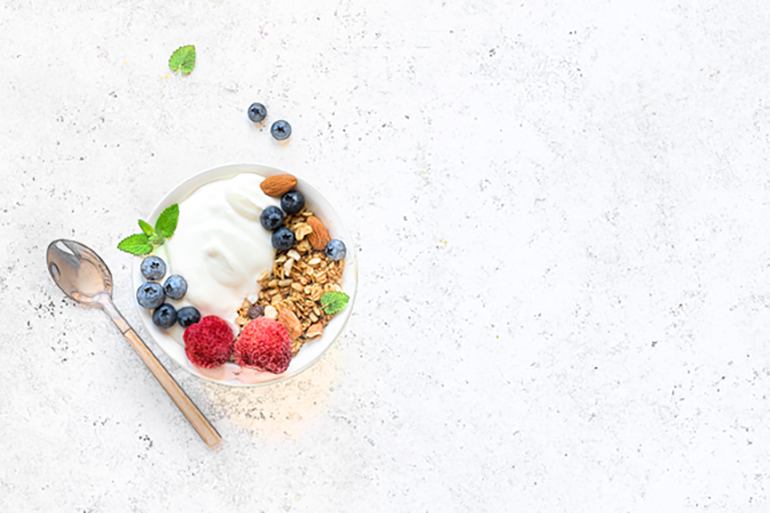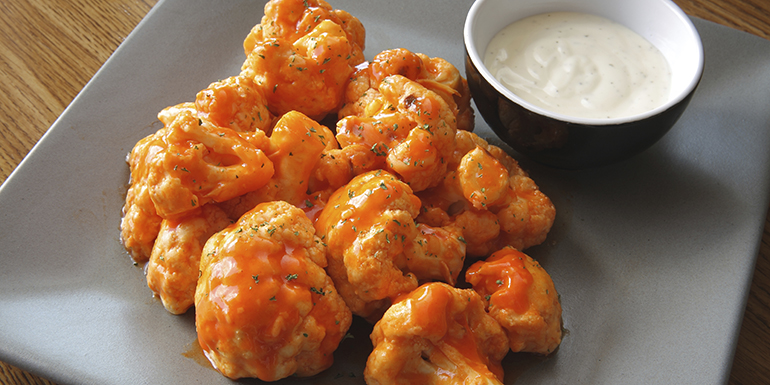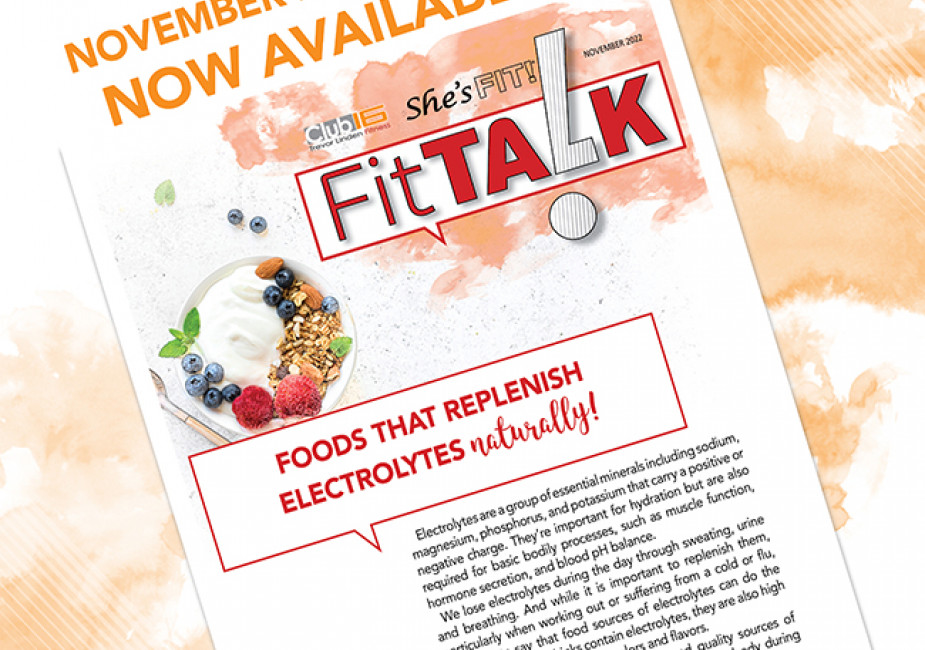TABLE OF CONTENTS

Electrolytes are a group of essential minerals including sodium, magnesium, phosphorus, and potassium that carry a positive or negative charge. They’re important for hydration but are also required for basic bodily processes, such as muscle function, hormone secretion, and blood pH balance.
We lose electrolytes during the day through sweating, urine and breathing. And while it is important to replenish them, particularly when working out or suffering from a cold or flu, nutritionists say that food sources of electrolytes can do the trick. While sports drinks contain electrolytes, they are also high in sugar and contain artificial colors and flavors.
Choosing foods that are naturally good quality sources of electrolytes should be enough to replenish your body during the day. Here are some examples:
- Bananas. One medium fruit offers 32 milligrams of magnesium, 25 milligrams of phosphorus and an incredible 375 milligrams of potassium. Bananas are also an excellent source of carbohydrate energy, which makes them a good pre- and post-workout option.
- Yogurt.A 5.5-ounce container of plain, non-fat Greek yogurt contains 173 milligrams of calcium, 220 milligrams of potassium, 212 milligrams of phosphorus and 56 milligrams of sodium. This natural and delicious source of electrolytes is also packed with protein making it an ideal food to have on hand any time of the day.
- Spinach. This hearty green veggie offers calcium and magnesium as well as iron, folate and vitamins A, B, and E. Use it as a salad green or in soups and stews. or whirl some spinach leaves in a smoothie for an energizing, healthy beverage.
- Watermelon. While all fruits and vegetables contain electrolytes, a cup of cubed watermelon contains ½ cup of water, along with 170 milligrams of potassium, says Real Simple, making it excellent for hydration.
- Avocados. Avocados have 728 milligrams of potassium and 43 milligrams of magnesium per fruit. The main ingredient in tasty guacamole also contains anti-inflammatory fats and vitamin E.
- Lemon juice. A squirt or two of fresh lemon juice over your salad or in your tea can add potassium and phosphorus. Lemons also contain vitamin C that helps boost your immune system. To improve its hydration potential, mix lemon juice with electrolyte-rich coconut water, another good hydrating beverage.
- Sea salt. Sea salt contains magnesium, potassium, calcium, and sodium. You can make your own super hydrating drink by mixing a pinch of sea salt with warm water and adding the juice of one lemon, and a bit of honey or maple syrup. Note that people with high blood pressure, heart disease and diabetes or kidney disease should limit their intake of extra salt or electrolyte supplements.
Buffalo Cauliflower with Blue Cheese Sauce

Cheese Sauce:
- 1/3 cup non-fat sour cream
- 2 tablespoons crumbled blue cheese
- 1 tablespoon skim milk
- 2 teaspoons mayonnaise
- Kosher salt and freshly ground black pepper
Buffalo Cauliflower:
- 2 tablespoons unsalted butter
- ¼ cup hot sauce
- 1 tablespoon freshly squeezed lemon juice
- 2 tablespoons olive oil
- Kosher salt
- 8 Cups Cauliflower florets (from about 1 medium head)
Directions
Preheat the oven to 400 degrees F.
For the cheese sauce: Whisk together the sour cream, blue cheese, milk, mayonnaise, 1/8 teaspoon salt and a few grinds of pepper in a small bowl. Cover and refrigerate until chilled, about 30 minutes.
Mix olive oil, ¼ teaspoon salt and ½ cup water in a large bowl. Add the cauliflower and toss until well coated. Spread the cauliflower on a rimmed baking sheet and roast until beginning to brown and just tender, 20 to 25 minutes. Whisk the hot sauce mixture again, drizzle over the cauliflower and toss with tongs to coat. Roast the cauliflower until the sauce is bubbling and browned around the edges, 5 to 7 minuets more. Serve hot with the cheese sauce.








